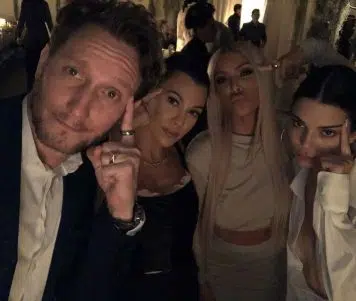
What Happens When a Sensory Artist Performs an Act that Doesn’t Work?
As a mentalist and sensory artist, a significant part of the success and the creation of that special atmosphere that the audience anticipates, is putting on an excellent show, a performance that truly amazes, amuses, surprises, and moves the viewers. But this is a stage and entertainment art that requires precise, high-quality implementation of a range of techniques and elements, so mistakes may happen, and sometimes certain acts may not work. What can cause this to happen and what does a sensory artist do when an act isn’t working in the middle of a show? Let’s take a closer look.
Frustrating, But it Happens
When a mentalism act is unsuccessful during a show, it can definitely be frustrating and even embarrassing, like a mistake or failure in any other type of entertainment on stage. But a sensory artist is a person too – yes, even Lior Suchard is an ordinary person, despite what you may thing…So mistakes, errors, and even failures do happen from time to time. While it doesn’t happen too much, there are cases when an act goes wrong and doesn’t create the planned effect.
When something like this happens, it is important for the sensory artist to apologize and explain what happened, hopefully with some humor and without unnecessary blaming. Afterward, he can simply move on to the next act naturally, with confidence.
What can cause a mentalism act to go wrong?
We already mentioned that certain mentalism or sensory art acts can be unsuccessful even in the middle of a live show in front of an audience. What could cause that to happen?
First of all, in every sensory art exercise or act, there are always at least two sides – the sensory artist on stage, and the participant from the audience. Sometimes, there are even a few participants involved in an act, as is often the case in Lior’s performances in Israel and worldwide. In order for the act to succeed and produce the desired effect and the planned result, both sides need to want it to succeed. This isn’t referring to amorphous or metaphysical elements of willpower, but rather that the participants from the audience need to cooperate and act openly and sincerely. If not, the sensory artist may be led in the wrong direction and the act might not succeed.
Second, in order to succeed in performing amazing and complicated mentalism and sensory art exercises, it is necessary to be extremely skilled at a range of techniques from the worlds of psychology, cognition, and human thought and perception, as well as to integrate it all in a very careful, clever, and specific order. Sometimes, when this is not carried out 100% precisely and professionally, the entire act can collapse like a tower of playing cards.
What are the chances that a sensory artist’s act will not succeed?
The chances of a failure are very dependent on the skill, experience, and professional level of the sensory artist. Without boasting, in Lior Suchard’s shows, it hardly happens, because Lior is a long-time, skilled, and super experienced entertainer who also structures and practices every act for several months before he performs it in front of an audience. And yet, it happens even to the very best!
Entertainment skills and wisdom are what save the situation when a sensory artist’s act doesn’t work, in real time, in front of an audience that is waiting to be wowed and surprised.
Does the success of one act impact the entire dynamics of a sensory artist?
Again, it depends on the experience, skill, and professionalism of the person as an entertainer, a stage performer, and of course, a sensory artist. In general, the rule of thumb – which also applies to many situations in life – is that even a failed act, as frustrating and embarrassing as it may be, really isn’t meant to cause the sensory artist to fall apart, nor is it meant to disrupt the entire dynamic of the show. It is important to remain professional, focused, and not let one failure in an entire performance ruin the rest of the event.
The show must go on!
An act that goes wrong in the middle of a sensory art show really isn’t the end of the world. In practice, with the right attitude, a sensory artist can even turn the situation into an opportunity to connect with the audience in a funny, unplanned way and to create an even more unforgettable experience for all of the participants.
The show must go on, as the cliche says, even when things go wrong. The lemon can be made into lemonade and the audience can still be wowed with additional mentalism and sensory art acts that are successful, moving, and surprising.








